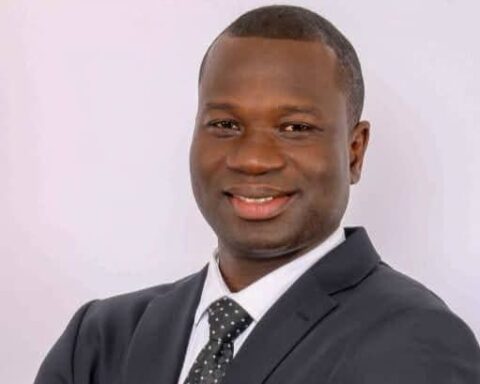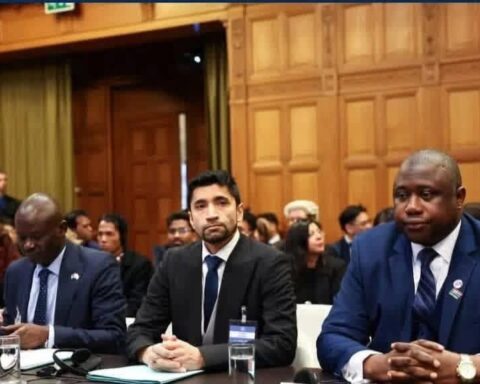By: Isatou Sarr
Justice Sonia Akinbiyi of the Banjul High Court Annex has delivered a ruling in the on-going case between The State and four accused persons: Nfansu Fatty (1st accused), Karamo Fatty (2nd accused), Ensa Colley (3rd accused), and Lamin Gibba (4th accused).
During proceedings, the sixth prosecution witness adopted his statement, after which the prosecutor, Mr. A.A. Wakawa Esq., sought to tender the statement through him. However, defence counsel B.S. Touray Esq. objected, arguing that the procedure was irregular and not supported by any rule of substantive law.
Touray submitted that such a statement could only be tendered if the prosecution intended to treat the witness as hostile, and only with the leave of the court. He further argued that admitting the witness’s written statement would amount to self-corroboration and would unfairly prejudice the defence, as the court would then be presented with both sworn oral testimony and a written version of the same evidence.
Counsel K. Jallow Esq., representing the 1st accused, aligned himself with the objection raised by Touray.
In his response, A.A. Wakawa cited Section 3(1) of the Evidence Act, noting that admissibility is governed by relevance. He dismissed the reliance on Section 22 of the Act by the defence as “irrelevant and misconceived.”
Touray maintained that Section 3 was not applicable and that the document had not been listed as an exhibit to put the defence on notice. Jallow supported this view, adding that Section 3 must be read in conjunction with other provisions of the Act.
In reply, Wakawa emphasized that the tendering of the statement was essential for corroborative purposes.
In her ruling, Justice Akinbiyi states that it is the duty of the court to interpret the words contained in the statute as written, not to seek an interpretation convenient to either party. She cited Sections 3 and 6 of the Evidence Act, holding that the statement of a witness is relevant within the meaning of the Act.
She added that while the statement is relevant, it does not relieve the prosecution of its duty to prove the case beyond reasonable doubt. Quoting from Godwin Okon Ita & Anor v. The State (2013) LPELR-21392 (CA), the judge noted that such a statement “is not evidence of the truth of the facts stated therein.”
Justice Akinbiyi concluded that the statement of the sixth prosecution witness was admissible and that tendering it through the witness did not breach the rule against self-corroboration.
Accordingly, the objection raised by B.S. Touray Esq. and K. Jallow Esq. was overruled.
The post Court Overrules Defence’s Objection In State Versus Fatty, Others’ Case appeared first on .
By: Isatou Sarr Justice Sonia Akinbiyi of the Banjul High Court Annex has delivered a ruling in the on-going case…
The post Court Overrules Defence’s Objection In State Versus Fatty, Others’ Case appeared first on .





